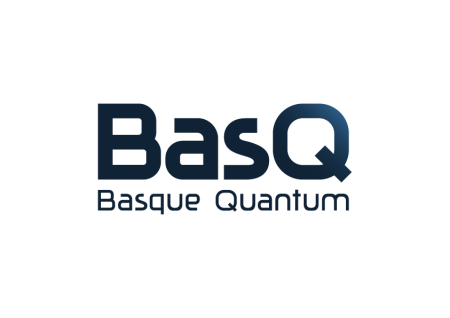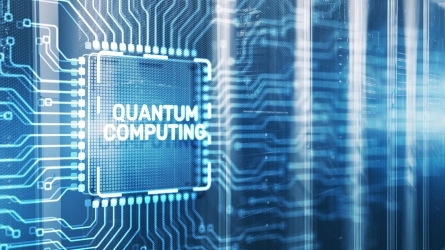
Quantum Computing: from fundamentals to applications
The program will cover topics ranging from theoretical foundations to available architectures and technologies, software development, quantum algorithms, and key applications.
Description
Framed within the International Year of Quantum Technologies, this Summer Course offers a comprehensive overview of advancements in Quantum Computing, blending theory with practical applications. The program will cover topics ranging from theoretical foundations to available architectures and technologies, software development, quantum algorithms, and key applications. Additionally, it will explore crucial aspects such as quantum-classical hybridization and the expected industrial impact of these technologies.
Aimed at researchers, advanced students (in fields such as Physics, Mathematics, Engineering, and Computer Science), as well as industry professionals and academics, this course seeks to provide essential tools and knowledge to understand and leverage the potential of quantum computing across various scientific and industrial domains.
Objectives
Provide a comprehensive overview of the fundamentals and technological advancements in Quantum Computing, from its theoretical foundations to practical applications.
Activity directed to
- University student
- Teachers
- Professionals
- Investigadores
In collaboration with
Program
10-09-2025
Institutional Opening session. Speaking order:
- Igor Campillo | Euskampus Fundazioa - Director
- Javier Aizpurua | BasQ - Director
- Maialen Agirre Pinedo | Departamento de Ciencia, Universidades e Innovación - Eusko Jaurlaritza / Gobierno Vasco - Directora
“Fundamentos de la Computación Cuántica: conceptos y principios“
- Juan José García Ripoll | CSIC - Investigador
Break
“Introduction to quantum superconducting electronics“
- Sebastian Bergeret XXX | CFM - Research Scientist
“Quantum computing with spins in semiconductor quantum dots“
- Fernando González Zalba | CIC nanoGUNE - Ikerbasque Professor
11-09-2025
“Átomos Fríos: control y aplicaciones en Computación Cuántica“
- Claudia Politi | ETH
“Fotones en Computación Cuántica: tecnología y perspectivas“
- Carlos Antón Solanas | Dep. Física de Materiales, Condensed Matter Physics Institute (IFIMAC), Universidad Autónoma de Madrid - Atracción de Talento Mod. 1
Break
“Plataformas de desarrollo cuántico: Qiskit, Cirq, Braket, Pennylane, etc“
- Aitor Moreno Fdz. de Leceta | LKS Next
“Taller práctico: ejercicios básicos en la simulación y ejecución de algoritmos cuánticos en hardware real (Qiskit)“
- Radha Pyari Sandhir
12-09-2025
“Introducción a la Jornada de Aplicaciones en la Industria“
- Javier Aizpurua | BasQ - Director
- Igor Campillo | Euskampus Fundazioa - Director
“Casos de uso en Computación Cuántica: Biomedicina“
- Sara Capponi | IBM - Research Staff Member
“Casos de uso en Computación Cuántica: Energía“
- Miguel Rodríguez Asensio | i-DE (Iberdrola Group)
Break
“Optimización Cuántica e Hibridación Cuántico-Clásica“
- Mitsuhisa Sato | RIKEN
Cierre
Directors
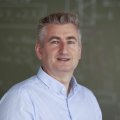
Javier Aizpurua
DIPC, Profesor
Ikerbasque Research Professor at Donostia International Physics Center, DIPC, and distinguished researcher at the University of the Basque Country, where he leads the Nanophotonics Theory Group. Javier Aizpurua gained his doctorate in Physics at the University of the Basque Country (UPV/EHU) in 1998 for work on the interaction of rapid electrons and nanostructures. After his pre-doctoral stage, he spent two periods as a post-doctoral researcher, one at Chalmers Technology University in Gothenburg, Sweden, and the other at the US National Institute of Standards and Technology (NIST). In 2004, Aizpurua joined DIPC, the Donostia International Physics Center, as a research fellow, starting to train a nanophotonics group. In 2008 he was awarded a permanent scientific place at the CSIC, taking responsibility for the photonics line of research at CFM, the Materials Physics Centre in San Sebastián, where he worked until 2023. From this year on, he joined Ikerbasque. He obtained the Euskadi Research award 2022, and is currently the director of the strategy Basque Quantum.
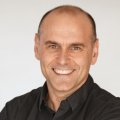
Igor Campillo
Euskampus Fundazioa, Director
He is director of Euskampus Fundazioa, founded in 2011 by the University of the Basque Country (UPV-EHU), Tecnalia Corporation and the Donostia International Physics Center (DIPC). He worked as assistant professor in the Faculty of Sciences of the UPV/EHU, international projects manager in Gamesa Energy, researcher and project manager at LABEIN- Tecnalia, project and outreach manager in the Nanoscience Cooperative Research Center- nanoGUNE, manager of the nanoBasque Strategy in the Basque Business Development Agency- SPRI, and director of DeustoTech. He holds a PhD in Physics from UPV/EHU, and a master degree in journalism and science communication from the Spanish Open University. He is the author of more than 70 international scientific publications indexed in the Web of knowledge,and author of 3 international patents. He has been awarded as one of the word-leading “Boundary Spanners” for University Business Cooperation by the University Industry Innovation Network.
Speakers

Javier Aizpurua
DIPC, Profesor
Ikerbasque Research Professor at Donostia International Physics Center, DIPC, and distinguished researcher at the University of the Basque Country, where he leads the Nanophotonics Theory Group. Javier Aizpurua gained his doctorate in Physics at the University of the Basque Country (UPV/EHU) in 1998 for work on the interaction of rapid electrons and nanostructures. After his pre-doctoral stage, he spent two periods as a post-doctoral researcher, one at Chalmers Technology University in Gothenburg, Sweden, and the other at the US National Institute of Standards and Technology (NIST). In 2004, Aizpurua joined DIPC, the Donostia International Physics Center, as a research fellow, starting to train a nanophotonics group. In 2008 he was awarded a permanent scientific place at the CSIC, taking responsibility for the photonics line of research at CFM, the Materials Physics Centre in San Sebastián, where he worked until 2023. From this year on, he joined Ikerbasque. He obtained the Euskadi Research award 2022, and is currently the director of the strategy Basque Quantum.
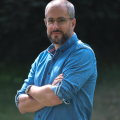
Carlos Antón Solanas
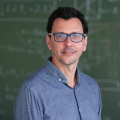
Sebastian Bergeret XXX
CFM-CSIC
Sebastian Bergeret earned his Ph.D. from Ruhr University Bochum (Germany) in 2002 under the supervision of K. B. Efetov and A. F. Volkov. He subsequently held a Ramón y Cajal research position at the Universidad Autónoma de Madrid. In 2009, he founded the Mesoscopic Physics Group at the Materials Physics Center (San Sebastián), where he currently serves as a Research Professor. His scientific contributions and current research span pioneering work on superconducting spintronics, quantum transport, and radiation detectors. In 2021, he was awarded the Friedrich Wilhelm Bessel Research Award by the Alexander von Humboldt Foundation.

Igor Campillo
Euskampus Fundazioa, Director
He is director of Euskampus Fundazioa, founded in 2011 by the University of the Basque Country (UPV-EHU), Tecnalia Corporation and the Donostia International Physics Center (DIPC). He worked as assistant professor in the Faculty of Sciences of the UPV/EHU, international projects manager in Gamesa Energy, researcher and project manager at LABEIN- Tecnalia, project and outreach manager in the Nanoscience Cooperative Research Center- nanoGUNE, manager of the nanoBasque Strategy in the Basque Business Development Agency- SPRI, and director of DeustoTech. He holds a PhD in Physics from UPV/EHU, and a master degree in journalism and science communication from the Spanish Open University. He is the author of more than 70 international scientific publications indexed in the Web of knowledge,and author of 3 international patents. He has been awarded as one of the word-leading “Boundary Spanners” for University Business Cooperation by the University Industry Innovation Network.

Sara Capponi
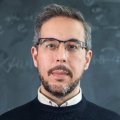
Juan José García Ripoll
Juanjo García Ripoll completed a PhD in ultracold atoms and 5 years of postdoctoral work at the Max Planck Institute for Quantum Optics, in which he contributed to the early developments of quantum simulation and quantum computing. In 2008 he joined CSIC as researcher, leading investigation in quantum hardware and quantum software to operate it. He coordinates the CSIC Platform for Quantum Technologies and the Spanish Network for Quantum Information and Quantum Technologies, and has contributed to the creation of two masters programas in quantum technologies in which CSIC collaborates.
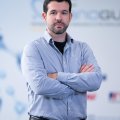
Fernando González Zalba
M. Fernando Gonzalez Zalba is an Ikerbasque Professor at CIC nanoGUNE where he leads the Quantum Hardware Group since 2024. He is also Head of Quantum Hardware Development at Quantum Motion, a start-up dedicated to the development of quantum computing hardware based on silicon technology. He holds a UKRI Future Leader Fellowship for the development of scaled up quantum computing architectures based on silicon technology. Furthermore, he is Associate Lecturer at the University of Cambridge - where he teaches Low-Dimensional Physics – he is Honorary Research Associate at University College London – for his dedication to graduate training – and Quondam Fellow at Hughes Hall, a University of Cambridge College. He obtained a PhD from the University of Cambridge with a thesis on Single-atom Electronics in 2013 and was Head of Quantum Computing at the Hitachi Cambridge Laboratory, a R&D centre of Hitachi Europe. In 2016, he received the R&D Technology Award from Hitachi's Centre for Social Innovation for the development of silicon-based quantum computing technology. He was awarded the Young Scientist Award by the Spanish Royal Society of Physics in 2017, and in 2019 became a Royal Society Industry Fellow.

Aitor Moreno Fdz. de Leceta
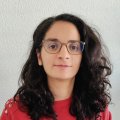
Claudia Politi
Claudia Politi is a postdoctoral researcher at ETH Zürich in the Trapped Ion Quantum Information (TIQI) group led by Prof. Jonathan Home. Since June 2023, she has been working on the development of a quantum information platform based on tweezer arrays of calcium atoms. Claudia has many years of experience in experimental quantum physics, with a strong background in laser cooling, trapping, and the manipulation of neutral atoms. She began her studies in 2011 at the Second University of Naples (Italy), where she worked on Doppler broadening thermometry in the context of redefining the SI units. During her master’s at the University of Pisa, her interest in ultracold quantum gases led her to join the group of Prof. Francesca Ferlaino in Innsbruck (Austria), where she later completed her PhD studies researching many-body quantum phases of dipolar atoms, contributing to the discovery of supersolid states.

Radha Pyari Sandhir

Miguel Rodríguez Asensio
Miguel Rodríguez Asensio leads the Data Hub at i-DE (Iberdrola Group), where he drives technology and innovation at the intersection of AI, data governance, and quantum technologies. With hands-on experience in deploying ML models and quantum-inspired solutions in the energy sector, he has contributed to national reports such as the first edition La España Cuántica from AMETIC. Miguel holds advanced quantum training from MIT xPRO and D-Wave, and regularly shares insights at industry events such as Big Data Analytics in Power and Utilities.

Mitsuhisa Sato
Registration fees
| Face-to-face | Until 10-09-2025 |
|---|---|
| 25,00 EUR |
| Live online | Until 10-09-2025 |
|---|---|
| 25,00 EUR |
Venue
Miramar Palace
Pº de Miraconcha nº 48. Donostia / San Sebastián
Gipuzkoa
Miramar Palace
Pº de Miraconcha nº 48. Donostia / San Sebastián
Gipuzkoa
